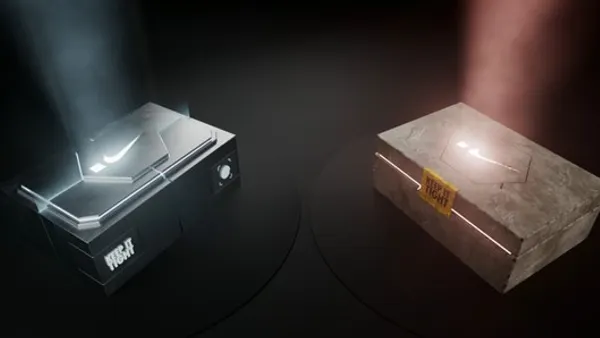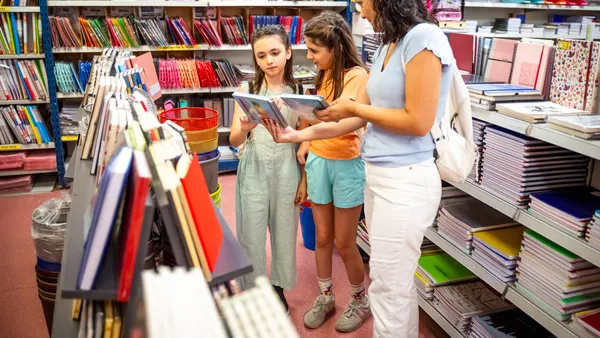Brief:
- Estée Lauder, Sephora, bareMinerals, Neutrogena, NYX Professional Makeup, YSL Beauté, Lancôme and Urban Decay from L'Oréal are the first beauty brands to sell products that people can buy after trying them out with Pinterest's new shoppable augmented reality (AR) feature, per an announcement shared with sister publication Mobile Marketer.
- The Try On feature works with Lens, Pinterest's visual search tool that can recognize 2.5 billion objects, to overlay a digital image of makeup on a selfie. To try the feature, users can tap on the Lens camera icon in search, click "try on" to see virtual product shades and swipe up to shop. Pinners, as the company calls its users, also can find Try On from a text search by looking for lipstick-related terms like "plum lipstick" or "red lips."
- Try On doesn't use digital skin smoothing or image-altering effects, making the AR experience more realistic. The company integrated the tool with a "skin tone range feature" to help find lip shades that match various skin tones and make the experience more inclusive, per the announcement.
Insight:
Pinterest's new AR try-on feature for beauty products aims to give Pinners a more immersive experience as they use the social platform to share images and look for inspiration. The tool comes as Pinterest doubles down on shopping functions as it looks to become more of a social commerce platform.
The beauty and personal care categories are especially popular among Pinterest users. Eighty-seven percent of Pinners who view those categories visit Pinterest while considering products to purchase, but are undecided, per survey data from researcher GfK cited by the social platform. That suggests that brands on Pinterest have an opportunity to reach potential buyers when they're most willing to learn about different brands.
AR demonstrations of makeup have been around for years, but Pinterest is putting a new twist on the experiences by not using image-altering technology that smooths away wrinkles. The emphasis on authenticity and body-positivity is in line with Pinterest's recent focus on mental health amid worries that social media usage is associated with depression and loneliness.
As part of the focus on mental health, Pinterest last year cut complaints about self-harm content 88% with the use of artificial intelligence (AI) to screen it out. Pinterest last year also added online exercises to help people cope with stress, anxiety and suicidal thoughts.
Pinterest is among the companies that have added AR try-ons of beauty products in the past year to provide a more immersive online shopping experience. Amazon last year integrated L'Oréal's artificial intelligence (AI) technology for makeup try-ons, giving customers in the U.S. and Japan the chance to virtually test lipsticks before making a direct purchase.
Google's YouTube added an AR feature that lets viewers test virtual makeup as they watch video reviews from social influencers. MAC Cosmetics and Guerlain were the first beauty brands to implement the AR tool, following a test that found 30% of viewers activated the AR experience in the YouTube iOS app and spent an average of more than 80 seconds virtually sampling multiple lipstick shades.
AR has become a key marketing tool for makeup brands as more consumers shop online and with their smartphones while on the go. Beauty AR pioneer Perfect Corp. has worked with Juicy Couture, Estée Lauder, Lancôme Paris and Maybelline, among others, to engage mobile shoppers of beauty products.












